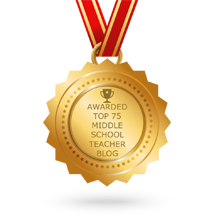 |
| Goldilocks, of course! |
Just Right Books
For a book to be "Just Right," it has to meet a few qualifications.
First, the book should match their purposes.
Is the child looking for a book to read for pleasure? Do they have to write a report on spiders, so they need a book that will teach them about a topic? It's important that children know why they are looking for the book they are searching for.
Second, it has to be of interest to the reader.
Prior to teaching this lesson to my kids, (mostly kids who rarely picked up a book) they would just pick up anything that had a cool cover and sit down with it. They have to be taught that we pick books based on our interests - the topic, the author, the genre. We look at the cover, but also read the summary on the back of the book. It may take 10 or 15 minutes to find a good book and that's okay! Spending time in the library being careful about what we read will save us the time of abandoning book after book going forward.
Third, it has to be of a level that will make us better readers.
I know some people organize their libraries according to levels, but I don't recommend this. We don't pick out books in real life according to a level or color or letter. We pick them because it's a story our friend read and recommended it. Or, we know we like Realistic Fiction, so we go back for another one of those.
So back to the level - once we find a book that is of interest, I encourage my kids to open up to a random page and try to read it. If they come across more than one or two words that they either don't know the meaning of or can't pronounce, that is not a JR book. The kiddos in your class need their independent reading selections to be easy enough for them to comprehend, with maybe one word here or there that trips them up. (Coming soon: Mini-lesson on "Clunk Words.") Children need to be taught that trying to read books that are above their level will only make them dislike reading. It's not that they can never read a book that is too hard, but they just have to wait awhile until they develop strategies to help them tackle that kind of text. While you want to give students as much choice as possible when selecting their books, the teacher has the final say. If you check in with a student and realize this book is too hard (Future book) and the child doesn't want to abandon it, you must tell them they have to, that reading a future book will not help them become better readers.
Instead of calling books "Too Easy" and "Too Hard," I like to call them Vacation Books and Future Books.
Vacation books are books that are soooo easy. You could read them at the beach and comprehend them without paying much attention to them. It's like a magazine or a really easy picture book.
Future books are books that are too hard. I just don't like calling these books too hard because eventually the kiddos in your class will improve their reading levels, so a future book may turn into a Just Right book as they grow in their independent reading.
If you'd like to read more on this topic, you can find more information beginning on page 29 of The Daily 5. Most of my PD books are at school, so I can't give you more references at this time, but will definitely update once I get back to them and unpack!
As you go forward with teaching this mini-lesson, know that it will take lots and lots of guided practice before your students are able to do this on their own effectively. There will be a handful of students who will get it really quick, another handful who will need TONS of coaching, and then a big group who will get it with a few 1:1 conferences. Don't give up on this idea - it will come with good time, pretty soon your kids will be devouring your classroom library!
Now...do you have any tips for this mini-lesson? Do you call your books by different names? I'd love to hear your thoughts!
Happy Wednesday!

























0 comments:
Post a Comment